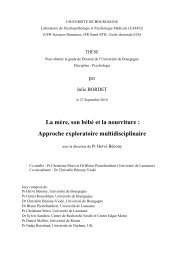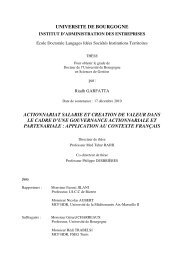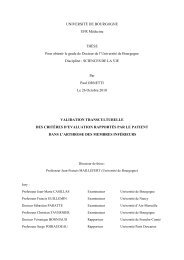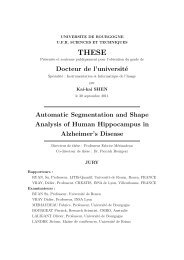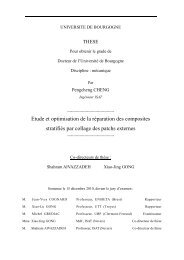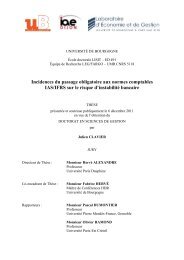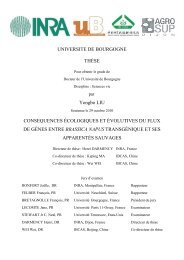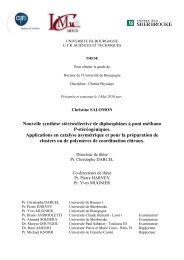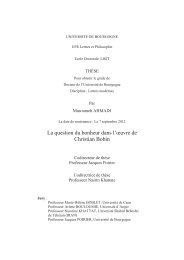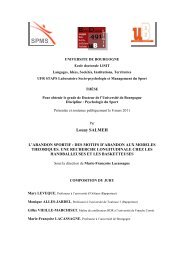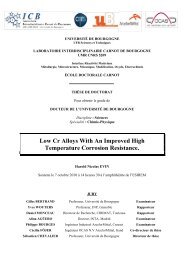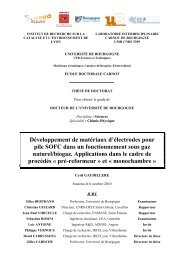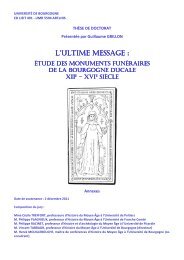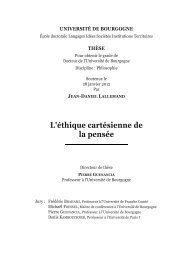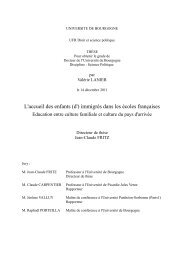Higher education in Asian countries and the role of international ...
Higher education in Asian countries and the role of international ...
Higher education in Asian countries and the role of international ...
You also want an ePaper? Increase the reach of your titles
YUMPU automatically turns print PDFs into web optimized ePapers that Google loves.
229<br />
primary, secondary <strong>and</strong> tertiary levels. As a result <strong>the</strong> central government has decentralized <strong>the</strong><br />
powers <strong>and</strong> responsibilities; local bodies or local governments have been given more power <strong>and</strong><br />
authority, <strong>education</strong>al <strong>in</strong>stitutions have been given more autonomy, community <strong>and</strong> private<br />
sector are contribut<strong>in</strong>g more effectively. At <strong>the</strong> advent <strong>of</strong> <strong>the</strong> 21 st century a package <strong>of</strong> policy<br />
reforms called <strong>the</strong> Basic Education Sector Reform Agenda (BESRA) (2005-2010) was <strong>in</strong>troduced<br />
that also <strong>in</strong>clude <strong>the</strong> Schools First Initiative <strong>and</strong> <strong>the</strong> Philipp<strong>in</strong>e Education For All (EFA) 2015 to<br />
improve basic <strong>education</strong> outcomes <strong>and</strong> to achieve EFA goals by 2015.<br />
Thail<strong>and</strong><br />
In early 90s Thai <strong>education</strong> went under drastic reforms to serve <strong>and</strong> respond <strong>the</strong> societal needs to<br />
<strong>the</strong> face <strong>the</strong> challenges <strong>of</strong> globalization <strong>and</strong> <strong>in</strong>ternationalization as <strong>in</strong> 1992 National Scheme <strong>of</strong><br />
Education was promulgated. The key motives <strong>of</strong> <strong>the</strong> reform process were; to establish knowledge<br />
society, to promote skills <strong>and</strong> competencies based learn<strong>in</strong>g, to improve <strong>the</strong> <strong>education</strong>al<br />
management system, to encourage decentralization, to enhance <strong>the</strong> private sector <strong>role</strong> <strong>in</strong><br />
<strong>education</strong>, to expend <strong>and</strong> extend higher <strong>education</strong>, to support quality assurance <strong>in</strong>itiatives <strong>and</strong> to<br />
mobilize more resources.<br />
The reform <strong>of</strong> <strong>the</strong> entire <strong>education</strong> system <strong>in</strong> Thail<strong>and</strong> was recommended, <strong>in</strong> 1996, <strong>in</strong> a report <strong>of</strong><br />
a special non-governmental Commission on Thail<strong>and</strong>‟s Education. In 1996 a master plan <strong>of</strong><br />
teacher reform was approved to improve <strong>the</strong> teach<strong>in</strong>g pr<strong>of</strong>ession status <strong>and</strong> teachers quality <strong>and</strong><br />
<strong>in</strong> 1997, Teacher Education Reform Office (TERO) launched five <strong>in</strong>novative programs: national<br />
teacher awards; special allowance for <strong>in</strong>-service tra<strong>in</strong><strong>in</strong>g; new-generation teacher <strong>education</strong>;<br />
school rat<strong>in</strong>g; school visits by lead<strong>in</strong>g Thai pr<strong>of</strong>essionals. In 1997 <strong>the</strong> basic <strong>education</strong> duration<br />
was <strong>in</strong>creased to 12 years <strong>and</strong> policies were framed to fur<strong>the</strong>r improve <strong>the</strong> teach<strong>in</strong>g pr<strong>of</strong>ession<br />
<strong>and</strong> to enhance <strong>the</strong> quality <strong>of</strong> <strong>education</strong> at all levels. Likewise <strong>in</strong> <strong>the</strong> higher <strong>education</strong> sector also<br />
reform were <strong>in</strong>troduced to promote equality, quality, efficiency, acceptability, unity <strong>in</strong> diversity,<br />
effectiveness <strong>of</strong> system management, <strong>and</strong> decentralization <strong>of</strong> adm<strong>in</strong>istration <strong>and</strong> management In<br />
1999 <strong>the</strong> National Education Act was promulgated to br<strong>in</strong>g reforms <strong>in</strong> teach<strong>in</strong>g-learn<strong>in</strong>g process<br />
from basic to higher <strong>education</strong> level <strong>and</strong> structural reform <strong>in</strong> <strong>the</strong> adm<strong>in</strong>istration to enhance <strong>the</strong><br />
efficiency. This Act provided a framework for fur<strong>the</strong>r <strong>education</strong> reform <strong>in</strong> all sub-sectors. In <strong>the</strong><br />
<strong>the</strong> National Education Act, <strong>the</strong> Office <strong>of</strong> Educational Reform was established <strong>in</strong> 2000 to work<br />
on decentralized f<strong>in</strong>ance <strong>and</strong> adm<strong>in</strong>istration, autonomy for <strong>in</strong>dividual teachers <strong>and</strong> <strong>in</strong>stitutions to<br />
set curricula <strong>and</strong> to mobilize resources. In October 2002, a twelve-year free basic <strong>education</strong>



